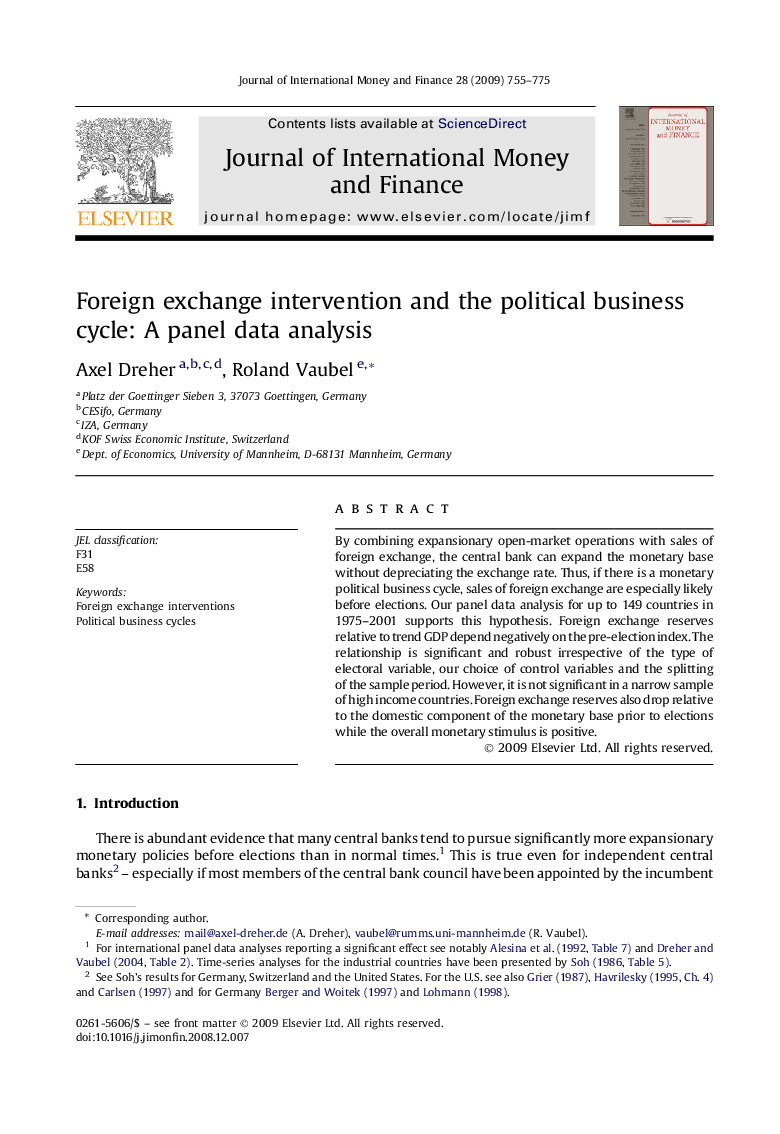| Article ID | Journal | Published Year | Pages | File Type |
|---|---|---|---|---|
| 964810 | Journal of International Money and Finance | 2009 | 21 Pages |
By combining expansionary open-market operations with sales of foreign exchange, the central bank can expand the monetary base without depreciating the exchange rate. Thus, if there is a monetary political business cycle, sales of foreign exchange are especially likely before elections. Our panel data analysis for up to 149 countries in 1975–2001 supports this hypothesis. Foreign exchange reserves relative to trend GDP depend negatively on the pre-election index. The relationship is significant and robust irrespective of the type of electoral variable, our choice of control variables and the splitting of the sample period. However, it is not significant in a narrow sample of high income countries. Foreign exchange reserves also drop relative to the domestic component of the monetary base prior to elections while the overall monetary stimulus is positive.
